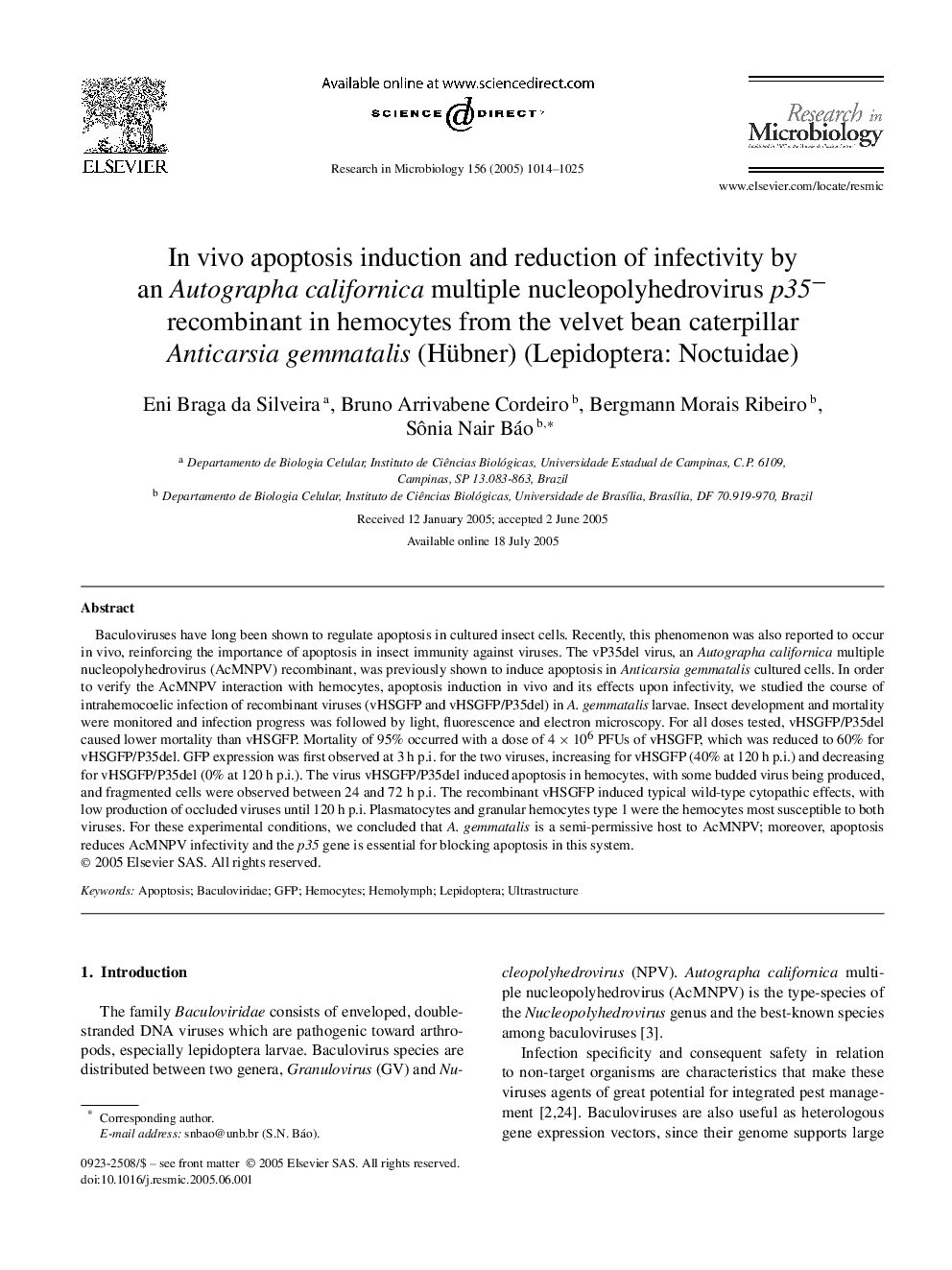| Article ID | Journal | Published Year | Pages | File Type |
|---|---|---|---|---|
| 9439898 | Research in Microbiology | 2005 | 12 Pages |
Abstract
Baculoviruses have long been shown to regulate apoptosis in cultured insect cells. Recently, this phenomenon was also reported to occur in vivo, reinforcing the importance of apoptosis in insect immunity against viruses. The vP35del virus, an Autographa californica multiple nucleopolyhedrovirus (AcMNPV) recombinant, was previously shown to induce apoptosis in Anticarsia gemmatalis cultured cells. In order to verify the AcMNPV interaction with hemocytes, apoptosis induction in vivo and its effects upon infectivity, we studied the course of intrahemocoelic infection of recombinant viruses (vHSGFP and vHSGFP/P35del) in A. gemmatalis larvae. Insect development and mortality were monitored and infection progress was followed by light, fluorescence and electron microscopy. For all doses tested, vHSGFP/P35del caused lower mortality than vHSGFP. Mortality of 95% occurred with a dose of 4Ã106 PFUs of vHSGFP, which was reduced to 60% for vHSGFP/P35del. GFP expression was first observed at 3 h p.i. for the two viruses, increasing for vHSGFP (40% at 120 h p.i.) and decreasing for vHSGFP/P35del (0% at 120 h p.i.). The virus vHSGFP/P35del induced apoptosis in hemocytes, with some budded virus being produced, and fragmented cells were observed between 24 and 72 h p.i. The recombinant vHSGFP induced typical wild-type cytopathic effects, with low production of occluded viruses until 120 h p.i. Plasmatocytes and granular hemocytes type 1 were the hemocytes most susceptible to both viruses. For these experimental conditions, we concluded that A. gemmatalis is a semi-permissive host to AcMNPV; moreover, apoptosis reduces AcMNPV infectivity and the p35 gene is essential for blocking apoptosis in this system.
Related Topics
Life Sciences
Immunology and Microbiology
Applied Microbiology and Biotechnology
Authors
Eni Braga da Silveira, Bruno Arrivabene Cordeiro, Bergmann Morais Ribeiro, Sônia Nair Báo,
